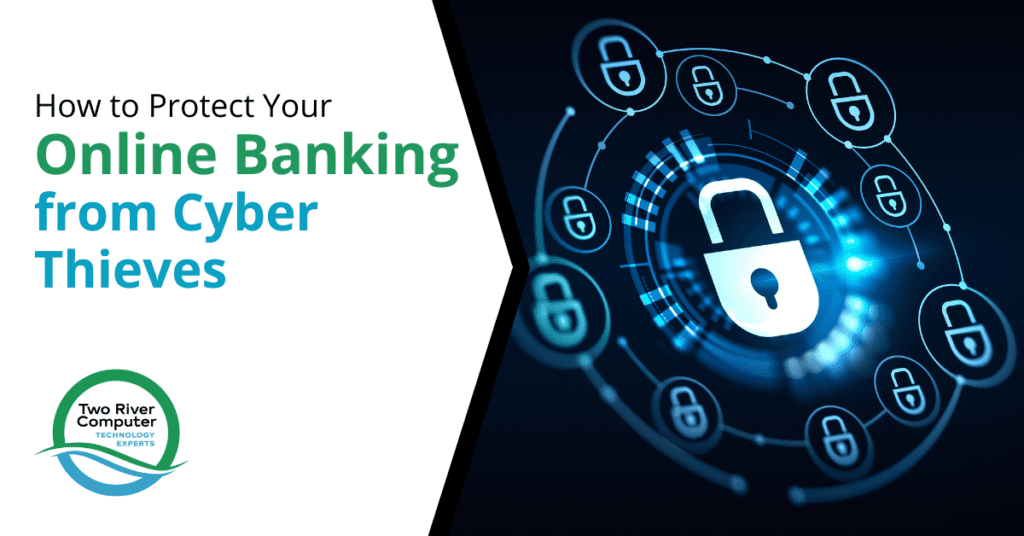
Your online bank account is a holy grail for cyber-criminals. Research shows that 71% of all data breaches are financially motivated. While some malicious actors go through complex lengths for monetary gain, many will opt for the simplest route. That is, hacking into your bank account and committing fraud.
So, how do you protect yourself from this threat? Here’s what you need to know.
How Do Malicious Actors Hack Into People’s Online Banking Accounts?
There are several methods that hackers may use in order to gain access to your online bank account. Some of the most common attack tactics include:
- Phishing attacks: Hackers may send fake emails or text messages that appear to be from a legitimate bank, requesting login credentials or other sensitive information. If the victim provides the information, the hacker can use it to access the victim’s bank account.
- Malware: Hackers may use malware to infect a victim’s device and steal login credentials or other sensitive information. This can happen if the victim clicks on a malicious link or downloads a malicious file.
- Man-in-the-middle attacks: Hackers may use this type of attack to intercept communications between the victim and the bank, allowing them to steal login credentials or other sensitive information.
- Unsecured networks: If a victim logs into their bank account while connected to an unsecured network, such as a public WiFi hotspot, it may be possible for a hacker to intercept the communication and gain access to the victim’s bank account.
How To Protect Against Online Banking Fraud
It can be intimidating to think of all the ways a hacker can use to break into your online account. But the good news is that there are several ways to protect yourself, including:
- Use strong, unique passwords: Using strong, unique passwords for all online accounts, including online banking accounts, can help protect against password-based attacks.
- Enable two-factor authentication: Many online banking platforms offer two-factor authentication, which requires the user to provide an additional form of verification, such as a code sent to a phone, in addition to their password. So when you sign up for a savings account, your information will be protected. Enabling this feature can add an extra layer of protection.
- Be cautious about emails and texts: Be wary of emails or texts that request login credentials or other sensitive information, even if they appear to be from a legitimate source. If in doubt, it’s a good idea to contact the bank directly to verify the request.
- Avoid public WiFi: Avoid logging into online banking accounts while connected to public WiFi networks, as these networks may not be secure.
- Use a trusted security solution: Using a trusted security solution, such as antivirus software, can help protect against malware and other online threats.
- Monitor accounts regularly: Regularly monitoring online banking accounts can help identify any suspicious activity and allow the user to take action quickly if necessary.
What Should I Do If My Online Account Has Been Hacked?
If the worst happens and you suspect that your online banking account has been hacked, it’s important to take immediate action to protect yourself and your financial information. Here are some steps you should take:
- Change your password: Change your password as soon as possible to prevent the hacker from continuing to access your account. Use a strong, unique password that is not used for any other accounts.
- Enable two-factor authentication: If available, enable two-factor authentication for your online banking account. This will require an additional form of verification, such as a code sent to your phone, in addition to your password, making it more difficult for the hacker to access your account.
- Monitor your accounts: Closely monitor your accounts for any suspicious activity and report any unauthorized transactions to your bank immediately.
- Contact your bank: Contact your bank as soon as possible to report the hack and to discuss any additional steps that may be necessary to protect your account. Your bank may be able to freeze your account to prevent further unauthorized access and may be able to provide additional assistance, such as canceling any compromised credit or debit cards.
- Consider freezing your credit: If you are concerned that the hacker may have obtained your personal information, such as your Social Security number, you may want to consider freezing your credit. This will prevent anyone from opening new accounts in your name.
We Can Help You Bolster Your Online Security
Protecting your online identity can seem like an overwhelming task, especially if you don’t have a background in IT. That’s where we come in. Our experienced, friendly experts have the knowledge and expertise to improve your online security and keep your financial information safe from hacking attempts.
If you’d like support or have any questions, contact us today. Two River Computer is here to help you stay safe online 24/7.


